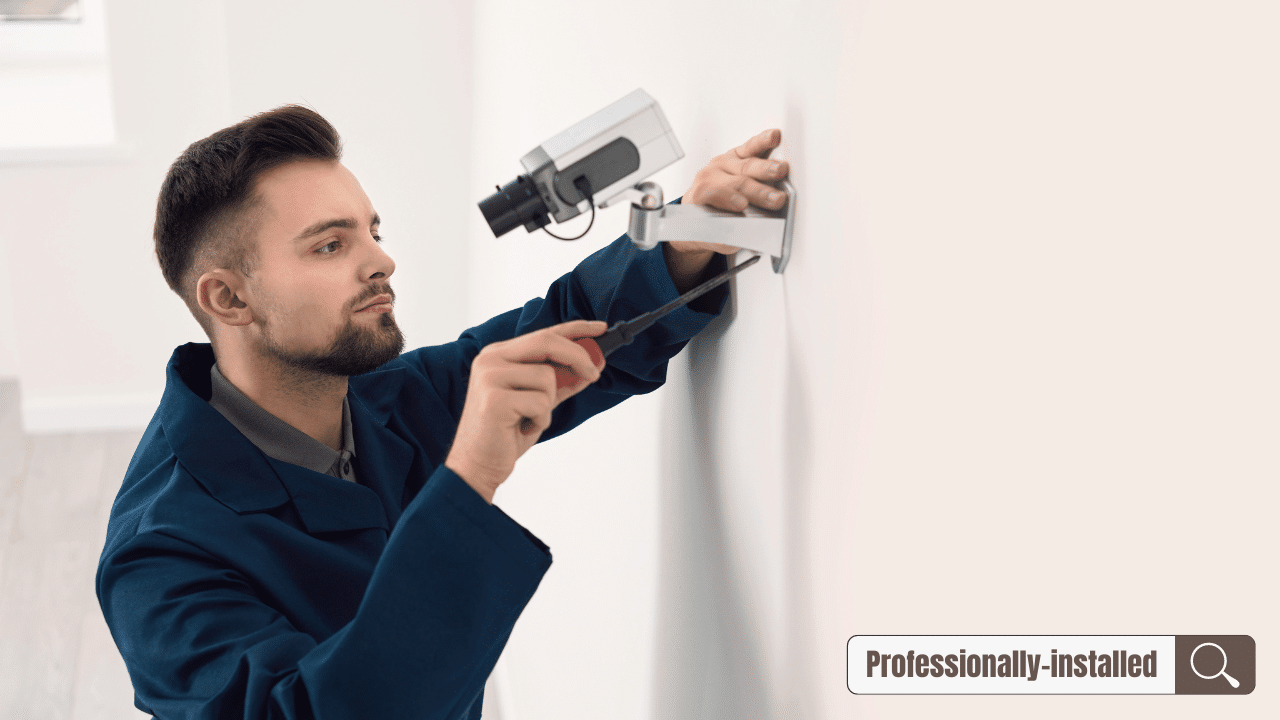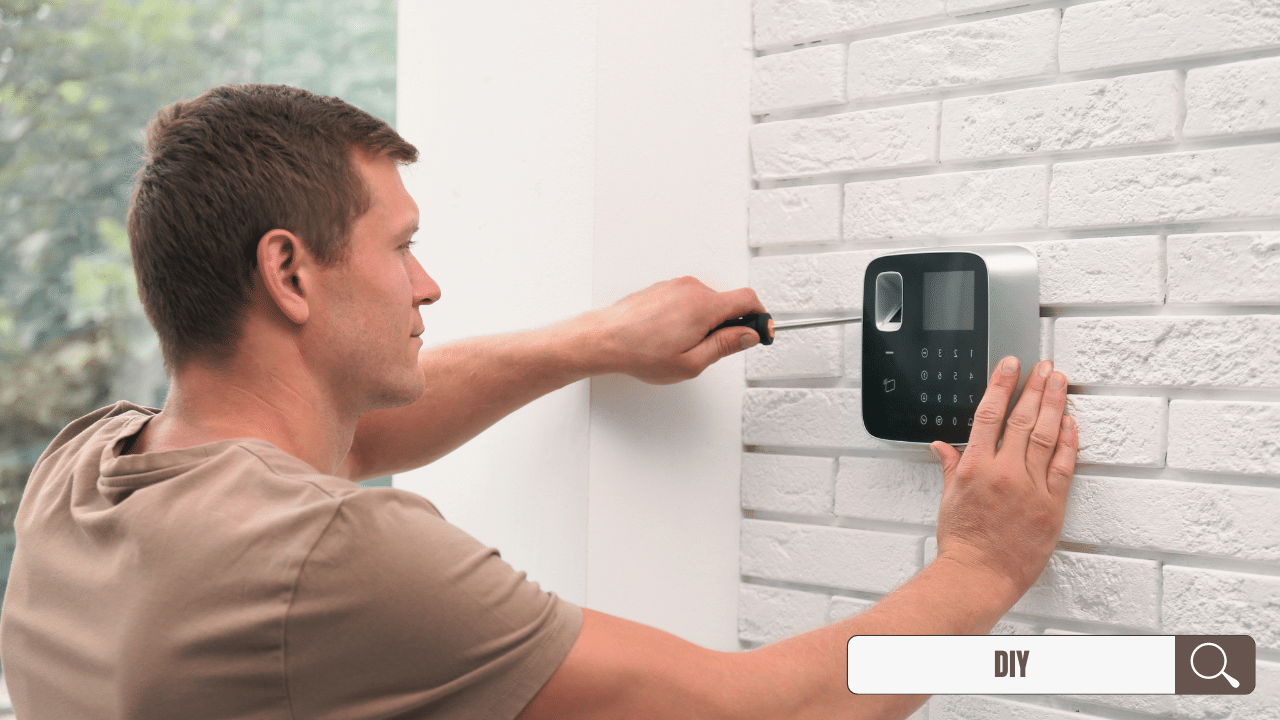If you've finally decided to buy a security system for your house but are torn between your installation alternatives... We're here to help! Choosing whether to do the installation yourself or hire a pro is one of the choices you'll need to make when buying a home security system. This will ultimately boil down to what type of home you reside in, who lives with you, and how handy you are with new tech. (Related: 5 Home Improvements That Are Life-Changing For Seniors and Disabled)
DIY security systems are perfect for tech-savvy persons who live in smaller, single-story homes that they don't share with many other people. Meanwhile, if you are less tech-savvy or live in multi-story homes with several occupants, professionally installed systems are more convenient. This will provide you with multiple access to the security system.
We've outlined the advantages and disadvantages of professional and do-it-yourself home security installations if you want to do more in-depth research.
Professionally-Installed Home Security System

If you lack sufficient technical know-how, time, or energy, you may benefit from hiring a professional installer to take care of the job. The main cons of choosing this route are the high installation costs and binding commitments.
Advantages:
Disadvantages:
A professional installation comes with technical know-how and requires no effort on your part. This may be the best option, especially if you do not mind an installation specialist entering your house.
Benefits of Professional Security System Installation
Listed below are some reasons why you should choose a professional security system installation.
1. Reliable Expertise
If you opt for professional installation, a specialist will be there to install your security cameras, door/window sensors, motion detectors, and any other equipment you desire. Although they might seem simple to install yourself, if you don't know much about home security– you might do it in a way that leaves your home susceptible and creates blind spots.
In contrast, a skilled installer will do a security evaluation, walk you through your system's ins and outs, and allow you to ask relevant questions in real-time.
2. Same-day Installation
A few home security system suppliers provide same-day installation. This implies that you can set up your system as soon as you buy it!
3. Hassle-free Wiring
Installing a wired security system may take more time and effort than installing a wireless system. Have a professional expert install your system if you don't feel comfortable making holes in your walls or working with electrical alarm systems.
4. Less Expensive Equipment
Some companies demand expert installation, while others provide you with the option of DIY installation. Contracts for expert installation are frequently lengthy, but this commitment may give you lower equipment prices upfront.
Drawbacks of Professional Security System Installation
If you choose a professional installation for your home security system, keep in mind that there are also several drawbacks to consider. This includes the expense, lack of schedule flexibility, and lengthy contracts.
1. Fees
When considering the equipment price and monthly monitoring, professional installation typically costs between $99 and $199. Installing a security system yourself may be preferable if your budget is already stretched thin.
2. Conflicts in Schedule
Although you can decide the ideal time for a professional to start the installation, there is no assurance that they will be accessible at a time that works best for you.
3. Binding Contracts
When you hire a professional installer, you will usually be required to sign a commitment that lasts at least one year. This may disadvantage homeowners who value flexibility or live in apartments.
DIY Home Security System

On the other side of the coin, a DIY system installation can be a good option if you're handy, tech-savvy, and want to avoid installation fees. You also won't have to fit into someone else's schedule– which can be liberating. But just like with expert installation, a DIY installation has advantages and disadvantages.
Advantages:
Disadvantages:
The main advantage of a DIY installation for your home security system is its affordability. And if you prefer working on home improvement projects, this can be a fantastic weekend task for you.
Remember that some home security service companies also offer adhesive sensors and freestanding equipment to make the DIY installation as simple as possible.
Benefits of DIY Home Security System Installation
Listed below are some reasons why you should choose a DIY home security system installation.
1. Zero Fees
Home security systems may be expensive when factoring in equipment costs and monthly monitoring. Installing it by yourself would be worthwhile if you want to save $99 up to $199.
2. Fit into Your Schedule
When you can pick your own time and day to install your equipment, you won't have to work around someone else's schedule. If you do it yourself, there's no need to worry about scheduling time to accommodate a home security specialist.
3. No Contracts
Most DIY installation companies allow you to use your system monthly rather than committing to a lengthy contract. This might be extremely useful if you have a wired system and intend to move.
Drawbacks of DIY Home Security System Installation
Keep in mind that DIY installation also has its fair share of drawbacks. Here are some disadvantages you may want to keep into careful consideration
1. DIY Installation needs Time, Energy & Effort
If you have a busy daily schedule, all of these might not be available. Compared to sitting back and unwinding while someone else takes care of the work, installing these security systems may feel like an uphill battle.
2. Lack of Knowledge
There are manuals and online tutorials included with your home security system. But if you lack technical knowledge, you can misconfigure the system. Furthermore, DIYers might not know the ideal areas to install the sensors. It might be better to hire professionals to ensure the installation goes as planned.
3. Higher Upfront Equipment Expenses
If you choose professional installation, the upfront equipment costs are typically lower. Meanwhile, you will need to make a big purchase (all of your equipment at once) if you go with a DIY installation.
Frequently Asked Questions (FAQs)
How much does it cost to install a security system?
Installation usually costs between $99 and $199, but buying the equipment upfront is another factor.
Can I install my own security system?
Yes. Peel-and-stick sensors and devices are readily available for DIY installation from many providers. You should install your security system if you have the time. Since most sensors are wireless, businesses have made installing smart security systems relatively simple. A step-by-step setup guide app should be provided for every system.
Are DIY home security systems good?
Yes. There are a lot of good DIY home security systems. They are usually wireless and already pre-programmed, so all that is left for you is to have them added to the app and stick onto your walls. However, hardwired security systems may be a bit more challenging to install.
How can I install a DIY home security system?
DIY home security systems are designed in a way that they are easy and ready to install. Bundles typically include a keyboard and a separate hub with a built-in alarm siren. Unless you prefer to wall-mount a camera or motion sensor, you will not need to use any tools or equipment. You must have dual-band Wi-Fi with 2.4GHz network access if your system has a camera. Internet streaming and security camera will require you to have enough capacity.
Are wireless home security systems reliable?
It will be almost impossible for anyone to hack or disable your system's hub regardless of whether your security system is DIY or professionally installed. However, security precautions should still be taken since DIY, and professionally installed security systems use wireless technology like Wi-Fi networks.
